A sector report about Germany's industrial heartland North Rhine-Westphalia
The industrial revolution transformed Germany in the late 18th century from a predominately agrarian society into the economic powerhouse in Europe. The seed for this rapid metamorphosis was planted in the coal rich regions of the Ruhr and Rhine, modern North Rhine-Westphalia. Till this day, the landscape of NRW is dominated by its industrial history. Facing ever stiffer competition globally as well as further challenges, NRW is determined to revolutionize and vitalize its industry, actively placing itself at the forefront of technological innovation for industrial solutions.
Facts & Figures
Today, with its nearly 18 million inhabitants, nearly one in five people of workforce, roughly 1.2 million people, in NRW is currently working in the industrial sector, mainly as mechanical engineers. In 2020, the industry generated roughly 320 billion euros in sales alone. That is 18% of Germany’s industrial sales concentrated solely in one single state. Furthermore, with its 710,000 SMEs, the German “Mittelstand” is still the backbone of the region’s economic force, contributing to more than 20% of Germany’s GDP. In addition, one in four market champions or hidden champion is at home in NRW, which further underscores the state’s economic strength.
But besides the classical industry actors and fields, NRW is also home to innovation which is greatly appreciated by the local industry. For instance, already 25,000 ICT companies have settled in NRW, generating nearly a third of all ICT generated revenue in Germany, totaling over 103 billion euros. Going even beyond that, NRW has already attracted 20% of all startups active in Germany, supplying even more radical innovation to the local industry, allowing local businesses to fully harness the practical insights and modernizations associated with the startup scene.
One example of such radical innovation is the nano-technology sector. Already 22% of Germany’s nanotech firms have set-up a business in NRW as well as 28% of all microsystems and technology companies.
Pioneering Germany's Industry 4.0
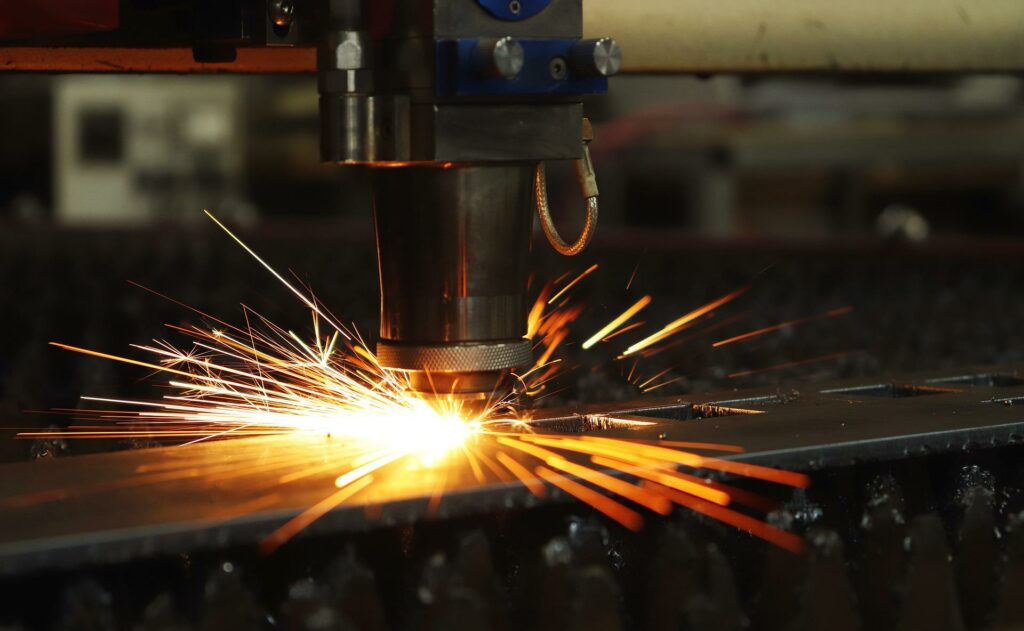
NRW is offering immense opportunities for any company and startup that is seeking to contribute to innovative industrial solutions and making the fourth industrial revolution not only a reality but also a success story. Being the industrial core of the continent and Germany, NRW is home to a truly broad industrial customer base from chemistry to machine manufacturing to electronics and electrotechnology, NRW has it all. Hence, there will be a niche for everyone to drive forward and build up owns company. Going even beyond the potential German industrial customer base in NRW, the state also offers quick access to over 160 million people in 500km radius, possessing roughly 3.5 billion euros in purchasing power.
In addition to its industrial advantages, NRW has plenty more to offer such as its leading research and education institutions. The former provide the perfect fertile ground for young and innovative companies to test and further improve their ideas, benefiting from the exchange between academic insights and practical needs and applications. These research institutions include, above all, the Fraunhofer Institutes such as Fraunhofer FIT or the Centrum Industrial IT (CIIT e. V.). Currently, there are over 780,000 students in NRW, studying at one of the 68 universities in the region such as the TU Dortmund, Ruhr University of Bochum or the RWTH Aachen. Roughly 27% of these students are attending classes and programs at technical colleges, guaranteeing a talented and well-educated workforce. Thus, it is little to no surprise that NRW is already leading in language modes research and quantum machine learning. Going even further, NRW is soon to be the home to Europe’s fastest computer, based on exascale computing, enabling faster and more accurate processing and numerous applications for forecasting models.
Pushing and facilitating the transformation of its industry and cities in the digital age, NRW is keen on rolling out flagships and other initiatives to foster innovation. One player in the region that is dedicated to harnessing the advancement of artificial intelligence is KI.NRW. Working together with local stakeholders from politics to civil society, companies, and academia, KI.NRW is actively applying AI. One such program is the application of AI to hospitals or mobility, transforming not only the industries, but also creating smart cities.
Ecosystem Industrial Solutions
To foster innovation and to provide startups with a suitable growth environment, NRW has launched many clusters and hubs to improve the region for young entrepreneurs. Some of these hubs are the DigitalHUB Aachen, Digihub Düsseldorf or the digital Hub münsterLand. All of which are dedicated to help young companies to network and provide access to key stakeholders in the region. Next to the hubs are the clusters. Based on the industry and technology, these clusters can vary. For instance, the blockchain technology has four distinct clusters in NRW, one in Aachen, due to the RWTH Aachen as well as in the cities of Dortmund, Essen, Cologne and Bonn. One player and facilitator on blockchain is the Blockchain Reallabor, building up a European blockchain institute in NRW to conduct research and practical application for the technology in the industry and logistics.
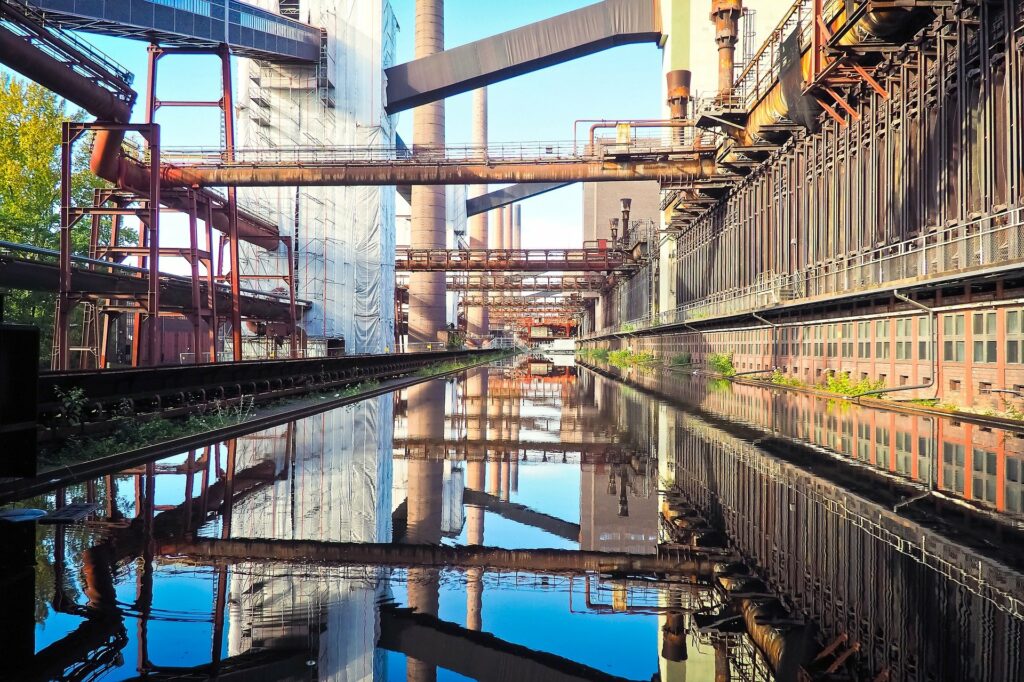
Another prime example of the great ecosystem are the co-operations between businesses and research in the state is the technology network “it’s OWL” (focusing on the region of Ostwestfalen-Lippe). Founded by government support as a technology network in 2012, “it’s OWL” has realized over 47 projects worth 100 million euros already and is currently planning to double the funding to 200 million euros over the next rounds of projects. One flagship project is the building of a smart factory with the Fraunhofer IOSB-INA, allowing for the testing of automatization and digital applications to the production processes. In its next round of projects, the “it’s OWL” is dedicated to further explore the potential for AI in optimizing and enhancing industrial manufacturing. These factors have greatly contributed to settling advanced industries and innovators in NRW. Furthermore, Dortmund, one of the urban centers of NRW, has been transformed to Europe’s biggest micro-tech cluster, employing over 2,200 employees among 40 companies in the industrial sector.
Trusted Partners
For any company, but especially for international ones seeking to expand or settle in new markets, reliable partners are key. Luckily, NRW provides such networks of great partners, sharing their access, resources, and insights with their respective networks. In the area of funding, NRW’s most trusted source of finance is the NRW.BANK, providing low-interest loans to both startups and SMEs north of 10 million euros as well as seeding capital for young founders. One dedicated program by the NRW.BANK is the “NRW.BANK.Digitalisierung und Innovation” program. As previously mentioned, one key partner is the “it’s OWL” in the industrial solutions sector, raising their funding capacity up to 200 million euros for future projects. Another source of funding, although at a smaller rate offers the “regional economic promotion” programs (RWP) in NRW, seeking to vitalize urban economies by allocating cash grants to businesses. Other partners are also participating in the Start.up! Germany Tour such as NRW.Global Business, the federal investment agency of the state. Or the Institute for Digital Future Technologies e.V., seeking to raise awareness and provide key access to an extensive network of potential customers and partners in NRW. And last but most certainly not least, there is the network of local chambers of industry and commerce (IHK) in Germany. The chambers, such as the ones organizing and participating in the tour are vital business partners in Germany, offering a wide array of services and advice for their local businesses, reaching even to the political centers in Berlin and Brussels.
If you want to hear more about this excting sector feel free to rewatch our corresponding webinar here:
A sector report about the infrastructure of sustainable technologies in North Rhine-Westphalia
The industrialization introduced radical change to the world, its people and to the economy, mostly at the expense of the environment. Germany is no exception to this rule. However, the country is determined to embark on the transition to carbon neutrality till 2045, signaling that economic progress does not have to be at the environments expense. North Rhine-Westphalia, the cradle of Germany’s industrialization is vital to this process. Having greatly benefitted from its natural riches of coal and steel production, NRW has been the engine of Germany’s industrial progress and forms till this day Germany’s industrial core. Confronting its industrial heritage, NRW seeks innovative solutions in greening its economy while maintaining its prosperity.
Facts & Figures
Building on its industrial history, NRW’s local economy is the 6th largest in Europe and even the 18th in the world, making it an economic powerhouse. Already today, the green tech sector contributes 6% to the gross value added in NRW, adding value north of 35 billion euros. Similarly, the sector has steadily grown by 1,9% annually since 2009, employing 468,000 people, predominantly in the service, construction and manufacturing sector. Further, one third of its revenue is generated through exports, indicating rising demand for greening services among NRW’s neighbors. Additionally, with the ongoing pressure to shift away from energy generated by fossil fuels, the domestic industry, consuming nearly 30% of Germany’s energy, is looking for alternative, green and innovative solutions, reducing the consumption of fossils while gaining efficiency as well as green sources such as hydrogen. Hence, to meet the current demand of 104TWh annually and 42TWh from its industry alone, the government of NRW has launched its own variant of a hydrogen roadmap, aiming to foster a domestic hydrogen market.
Greening Germany's industrial core - NRW

NRW offers great opportunities for the green tech market. Not only is the state home to a dynamic economy, generating 773 billion euros and an industry contributing over 50% to this, 356 billion euros. The region is also home to over 700,000 SMEs, hence offering a huge variety of potential customers, business partners and cooperation for green tech firms, seeking to enter the German market. Furthermore, as every fourth market leader in Germany is located in NRW and the local industries are emphasizing the need to transition, demand for innovation is on the rise. Already today, many new industrial and business parks are being created, targeting especially green tech, such as the EUREF Campus Düsseldorf or the Smart-Tec Campus Wuppertal.
In addition to an immense potential of serving to a broad variety of industrial customers, NRW also offers some of the leading institutions in scientific research and education the country, such as the Wuppertal Institute or the Fraunhofer institutes Umsicht and IAIS. Similarly, in education, nearly 800,000 students are currently learning and researching in NRW. 40% of which are coming from the MINT-fields, promising a rich pool of talent for the green tech sector. Furthermore, NRW hosts more than 30 courses and programs that are directly targeting green tech. Leading education facilities are the TU Dortmund, the RWTH Aachen or the Ruhr Universität Bochum. Next to the supply with leading talents, the research and education institutions in the state are also open to foster common exchange and projects with the companies, enabling the transfer and application of newest insights from the scientific frontier to the practical needs of the companies.
Finally, being aware of the great challenges in transitioning the local economy to carbon neutrality and energy efficiency, the central as well as local government is actively supporting the settlement of innovative green tech companies in the region. For instance, there is the previously mentioned initiative to create a domestic production and industry of hydrogen, being supported by the Package for the future, allocating over 7 billion eurps in building up this market as well as 2 billion euros to foster international partnerships to meet the increasing demand and compensate for the lack of domestic supply. Besides the hydrogen roadmap, the public sector is also keen in supporting the construction sector in becoming greener and more energy efficient by launching new building projects for commercial properties, harnessing the innovative solutions and material provided by the green tech sector.
Ecosystem Green Tech
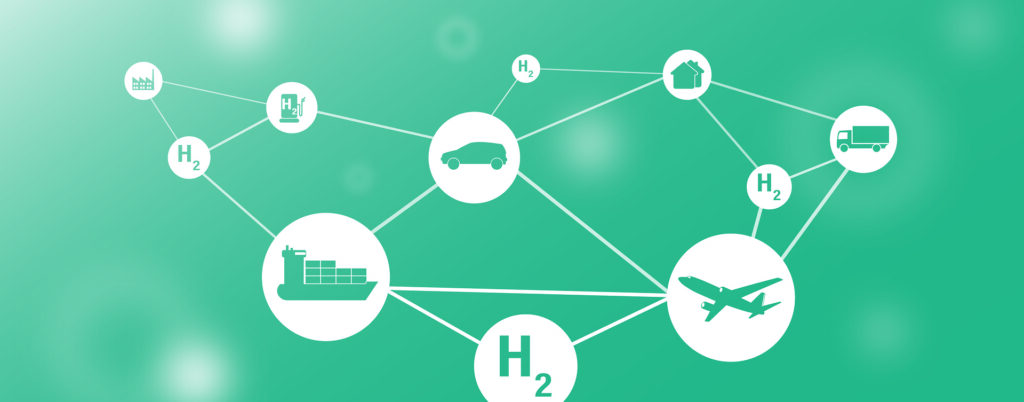
Due to its many advantages, NRW is home to a perfect ecosystem for green tech companies in Germany. The region is already home to many networks, clusters and accelerators, such as Kompetenznetzwerk Umweltwirtschaft NRW (Network for Competence and environmental economy), NRW.Energy4Climate and Circular Valley. The latter is cooperating with over 35 startups already on the globe to raise international awareness for green tech and to combat climate change at an international stage. Further, as already mentioned, NRW houses excellent research institutes as the Fraunhofer Institutes or the Jülich Research Center, producing key insights and vital progress for startups and entrepreneurs to tackle challenges and develop their ideas. Some of this has already led to innovative and groundbreaking projects and programs in NRW. For instance, dedicating themselves to the implementation and development of digital and artificial intelligence as source of green tech solutions, there is the Competence platform AI in NRW, KI.NRW.
Trusted Partners for the transformation
In order to successfully facilitate the growing market for green tech and to support the young innovators, NRW provides many great partners and their respective programs to realize the potential of green tech. One key component of this is of course funding. The latter can be achieved either by private or public investors. For both of which ZENIT is providing the suitable network and advice. Another source is the NRW.BANK, offering low interest loans for up to 10 million euros over 5 years via its NRW.BANK.Gründung und Wachstum or the NRW.BANK:Elektromobilität programs. For additional networking in the region, there are many great initiatives such as NRW.Energy4Climate or Greentech.Ruhr, fostering lasting links and cooperation among businesses, test labs and funding opportunities. Another vital partner is the region and across Germany are the local chambers of industry and commerce (IHK), offering strong advice and assistance to all companies in their respective district. Advising on crucial business issues and regulatory affairs, the IHKs are well suited to assist in any situation and to guide businesses in the region.
If you want to hear more about this excting sector feel free to rewatch our corresponding webinar here:
A sector report about Germany's logistics hotspot North Rhine-Westphalia
Although it is a well-known fact that all roads lead to Rome, it is little known that most of them will eventually passing through North Rhine Westphalia (NRW). As the most populous state in Germany, sharing borders with France, Belgium and the Netherlands and a booming economy, NRW is truly the beating heart of Europe. Located in the center of Europe and equipped with an outstanding infrastructure network, NRW is the prime location to serve a wide range of customers and businesses across the continent. Due to these factors, already 19 out of the 50 top-selling companies are located within the state as well as 9 of the 25 leading logistics firms such as DHL, UPS and FedEx. Hence, making NRW a booming and vital target for the logistics & mobility sector.
Facts & Figures
As already mentioned, NRW with its 17.7 million inhabitants is most populous state in Germany, but also more densely populated than Japan our its direct neighbor, The Netherlands. Besides its respective amount of potential local costumers, with private consumption totaling 383 billion euros, NRW offers access to 160 million potential customers within a 500 kilometers radius equivalent of nearly a third of all European customers. In addition, all mayor metropolitan areas and cities are in reach of a three-hour flight, providing ample opportunities to expand operations within Germany and across Europe. Moreover, generating an overall trading volume north of 400 billion euros, NRW is an undisputed economic powerhouse offering plenty opportunities in the B2B sector. Besides the heavyweights among the logistics companies such as Amazon, Deutsche Post, 3M, FedEx or Zalando, NRW is home to 24,000 logistics companies, a quarter of all logistics companies in Germany, employing over 388,000 people and generating 72,7 billion euros revenues in 2017. However, due to its rich industrial history, many industrial, manufacturing and chemical companies operate their own logistics, contributing to 773,000 employees total in the logistics and mobility sector. Thus, logistics remains a key contributor and essential sector to NRW’s economy, employing roughly 10% of the workforce. With growing demand and new opportunities, the logistics and mobility sector are also crucial drivers in new projects, taking advantage of the industrial and commercial spaces in NRW. Despite the negative impacts inflicted by the global pandemic, 50 new projects have launched in the region, expanding existing as well as constructing new logistic hubs on 1 million m² land with firms in the e-commerce sector such as Picnic leading the charge.
Europe's heartbeat (NRW advantages)
The key for NRW’s success in the logistics and mobility sector are its geographic advantages over other regions in Germany or Europe as well as its significant infrastructure network. Being situated at the intersection between the two Hanseatic ports of Hamburg and Bremen, as well as the Belgian ports of Rotterdam and Antwerp, NRW enjoys privileged access to the mayor ports in Europe and the world. Additionally, with 240 kilometers of the Rhine, NRW boasts 120 ports of its own, offering more than 720 kilometers of waterways and canals available to shipping. Further, both Germany’s largest inland port, duisport, and canal port Dortmund are in the region. Duisport is managing roughly 42 million of the 106 million tones cargo being transported via water in NRW annually.
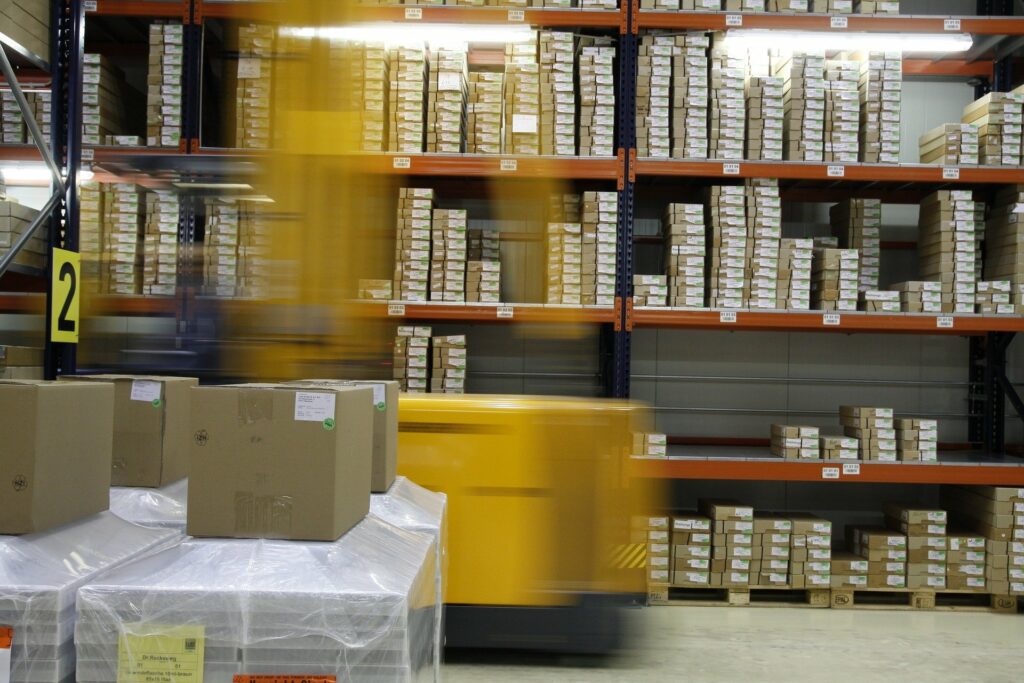
Moreover, the region offers a highly sophisticated infrastructure network of 29,500 kilometers roads, 2,200 kilometers of which are highways serving 57,000 vehicles daily, as well as over 6,000 kilometers rails, creating not only reliable links with the urban hubs of the region, but alterative access to the ports such as the Betuwe freight rail to Rotterdam. Going even beyond Europe, NRW’s capital Dusseldorf as well as the City of Duisburg are key locations among the Belt and Road Initiative by China, bridging the vast distance between Asia and Germany with 35 cargo trains carrying over 100,000 containers from Chengdu and Chongqing into the heart of Europe and vis versa. Besides the impressive rail, road and canal system, NRW also offers six airports, two international and four intra-European ones, enabling companies to reach all mayor cities in Europe and establish or intensify links to all important markets in Europe.
In addition to its natural advantages and impressive infrastructure network, NRW also offers great spaces for the logistics and mobility sector, providing over 205 hectares of available space for new commercial zones. Further, the government and ministries in NRW are key partners in these projects, actively supporting new and existing businesses. For instance, the state was instrumental in realizing the newPark projects on Datteln, Waltrop and Gelsenkirchen, as well as commercial parks and zones targeting smaller and medium sized companies in the Rhine-Ruhr region.
Next to the space, NRW offers great scientific and research institutions, fostering innovation and a highly qualified talent pool in the region. For instance, the universities RWTH Aachen, TU Dortmund, Neuss University of Applied Sciences, universities of Duisburg-Essen, TU Cologne are training their students in various areas of logistics. Moreover, besides guaranteeing a steady supply of well-trained talents in the region, many of these institutions have launched their own logistic research facilities in cooperation with companies, aiming to revolutionize the logistics and mobility sector. One of such research institutions is the Effizienz Cluster Logistik Ruhr, funded by the state as well as business collaborations, the goal of the Cluster is the successful development and implementation of automatization and robotics to logistics, harnessing the advantages of the industry 4.0. Another great project, supporting businesses in the sector is SE Silicon Economy and the Open Logistic Foundation, introducing the concepts of the platform economy to logistics and mobility, mainly applied in the B2B aspects, all in on an open-source software, allowing both large and small companies to harness the advantages.
Ecoystem Logistics & Mobility
Based on the above-mentioned advantages, NRW is home to a fantastic ecosystem in the logistics and mobility sector for both established companies seeking to innovate themselves as well as startups seeking to revolutionize and disrupt the sector with novel ideas and approaches. Next to the before-mentioned research institutions and flagships such as SE Silicon Economy or Leistungszentrum Logistik und IT, there are many more key players and opportunities in the ecosystem. For instance, one the crucial drivers in the sector, serving as competence centers are the Fraunhofer institutes, such as Fraunhofer IML, Fraunhofer ISST, realizing projects, such as fully automated warehouses, replacing the traditional conveyor belts with decentral controlled robots. Targeting startups there are many great support opportunities such as the Exzellenz Start-up Centers NRW, facilitating the transfer from theoretical and academic insights to the business reality. The centers are being currently funded with 116 million euros to support young entrepreneurs setting up their startups in the region. Another one is the start2grow initiative in NRW and Dortmund, providing active support and funding, as well as networking and awards for young startups.
startport - Acceleration support at its best
One element vital for young startups are the accelerators, assisting the fresh entrepreneurs to advance their businesses and groundbreaking ideas. NRW offers such accelerators in its ecosystem. One prime example is startport. Located at the pulse of logistics in the region, the harbor at Duisburg, startport and its young entrepreneurs are harnessing technology to create true value by innovations. Based on their already extensive network, they offer startups many benefits, such as matchmaking with potential customers, active support through coaching and projects, as well as flexible office space and access to many venture capital funds and business angels. Together with the Start.up! Germany Tour, they supported ANT Machines’ founder Vitaly Chukanov to settle in Dortmund. Accordingly, Vitaly drew a positive conclusion after the tour: “It’s a good way for every startup that wants to raise awareness about its product or idea. (…) For us, the Start.up! Germany Tour was a great experience in terms of pitching to different audiences. It helped us gain many insights because we received feedback from a large number of different companies and institutions. That was really valuable and relevant for us, a great addition to winning the third place.”

For more established companies, there are further opportunities to access the immense pool of talent, expertise and innovation generated in the field. Tailored to SME’s there are the project Digital in NRW: Kompetenz für den Mittelstand, Mittelstand Digital Zentrum Ruhr-OWL, Start-In Factory Dortmund or the TU Concept GmbH. All of these are seeking to assist SMEs in the current challenges of increasing digitalization and transformations in the industry. To do so, all of them are providing tested insights from previous cooperation projects as well as setting up networks for companies to exchange best practices and learn from each other. For even larger companies, there is also an abundance of potential enterprise labs, offering breakthroughs and practical applications from scientific research. Again, a key player in this field is the Fraunhofer institute, cooperating with for instance the Dachser-Network to create Dachser Enterprise Lab, applying AI to the needs of the companies. Similarly, the DB Schenker Enterprise Lab, in cooperation with Fraunhofer, is aiming to revolutionize the logistics industry, generating insights on the applicability of research to practice. Ultimately, striving to develop the next generation of logistic products and business models.
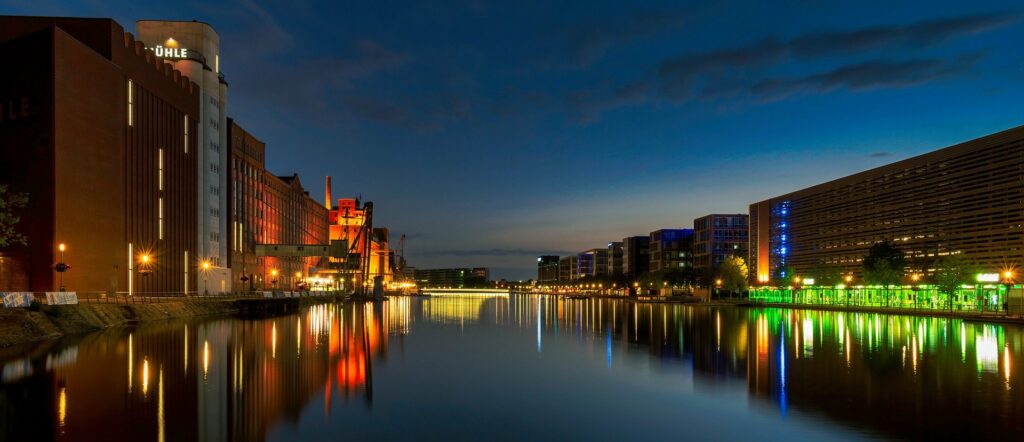
Reliable Partners for the Future
In addition to the significant advantages and friendly ecosystem, NRW prides itself to not only having the best conditions for young innovators and entrepreneurs in the logistics and mobility sector, but also some of the greatest networks and partners such as the mentioned startport. From the government and public sector side, there are the Ministry for Economic Affairs, Industry, Climate Action and Energy, as well as the local Chambers of Commerce and Industry that are partnering up to bring together the greatest minds through initiatives such as the Start.up! Germany Tour.
In addition to partnering up with many other players and networks, the state also offers small grants in support for startups. Another public sector partner is the NRW.BANK, providing multiple programs for companies to gain access to capital. For instance, the NRW.SeedCap offers an additional capital with 100,000 euros in the first round as well as potentially an additional 100,000 euros in the second round of capital raising. Targeting SMEs, the bank also launched the program, NRW.Venture, offering to acquire shares worth of 10 million euros for young and dynamic companies.
Another potential partner, specifically for companies and young firms in the logistics sector, is the “e-port Dortmund” - the Center of Foundation and Competence for logistics and IT. E-port Dortmund offers support in settling new companies and startups in Dortmund with direct access to the canal port. They offer renting spaces, networking opportunities and events such as the 3rd Wednesday of each month, each quarter. In addition to their support, the center also hosts a tailored award for small startups in Dortmund, the “Innovative Logistik Award”, promising free rent for one year and further exposure in the local startup scene.
Similarly, NRW.Global Business is actively supporting the businesses and region of NRW, seeking to raise awareness and investments into the local economy. In doing so, NRW.Global Business helps companies, also from abroad, to settle here in NRW, entering the market as well as expanding access to new and dynamic growth ones. Having already attracted more than 20,000 international companies to Europe’s beating heart, NRW.Gobal Business has a proven track record and is a reliable partner, assisting every company to invest into NRW or gain access and harness the advantages of its vast network.
If you want to hear more about this excting sector feel free to rewatch our corresponding webinar here:
As part of the main program of the Start.up! Germany Tour 2021, the talk with representatives of DB Schenker and Gideon Brothers (croatian startup) was about giving insights about their collaboration.
The collaboration between DB Schenker and Gideon Brosthers started in 2018. The global logistics service provider DB Schenker with headquarter in Essen and the Croatian startup Gideon met in the semifinals of the Start.up! Germany Tour.
Since then they have collaborated in several ways. The most imporant incident during their collaboration has been the 31 million dollars Series A investment into the Croatian robotics and AI solutions startup by DB Schenker in June 2021. DB Schneker joins the startup to accelerate the development and commercialization of Gideon's AI & 3D vision-based autonomous mobile robots (AMRs).
During a talk about this collaboration, representatives from DB Schenker, Gideon Brothers and the German-Croatian Chamber of Commerce have been invited to tell this great success story!
Talk guests have been: Mr. Erik Wirsing, Vice President Global Innovation, DB Schenker; Mr. Matija Kopić, CEO, Gideon Brothers and Mrs. Melita Maganić, Member Relations & Start-ups, German-Croatian Chamber of Commerce and Industry
The talk was overall moderated by: Mr. Marc Meckle, Deputy Managing Director International, Chamber of Industry and Commerce Essen, Mülheim.
Let this talk inspire you!

North Rhine-Westphalia is not only Germany's most populous state, it also occupies a top economic position in the Federal Republic. Twelve of Germany's 40 largest commercial enterprises are based here, and with its strong industrial core, numerous world market leaders and a dense network of research institutions as well as technology and start-up centers, NRW is as much an innovation-driven business location as it is popular with international investors.
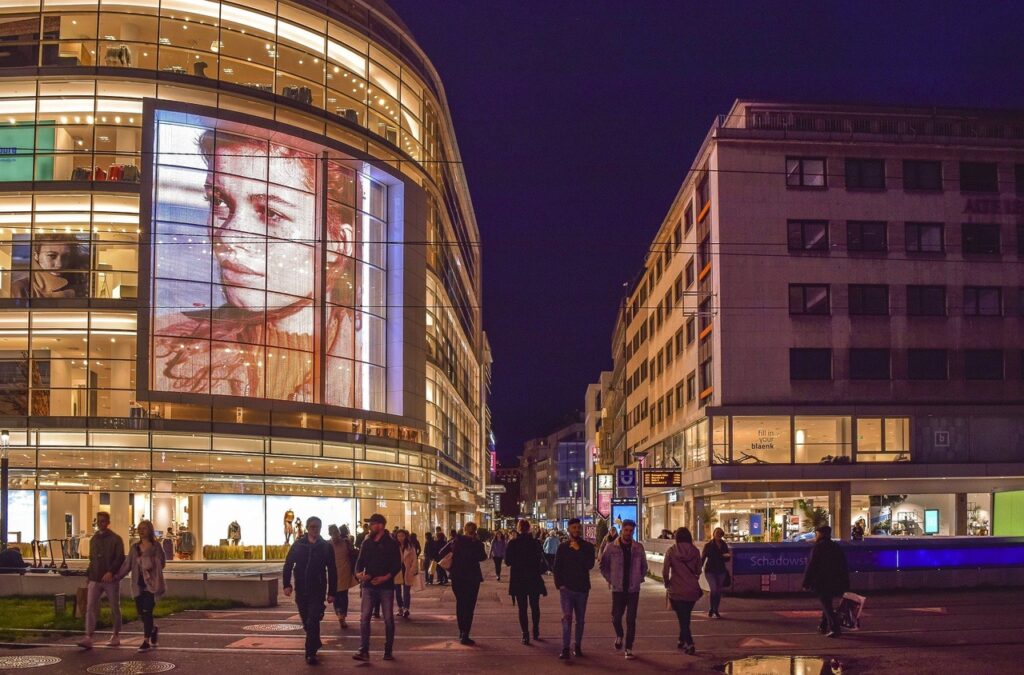
Business location with many advantages
One of the most important reasons for North Rhine-Westphalia's economic success and international competitiveness is its central geographical location in the heart of Europe. In addition, the state has a unique infrastructure as well as numerous high-quality commercial sites and properties.
What fuels the innovative power in this country is above all the close cooperation between business and research. Nowhere else in Europe are there so many scientific institutions in such a small area. These include 70 universities and universities of applied sciences, 14 institutes of the Fraunhofer-Gesellschaft, 12 Max Planck Institutes and more than 50 research facilities located at universities.
In addition, there are targeted initiatives to strengthen the innovative power in North Rhine-Westphalia, such as the competence platform for artificial intelligence "KI.NRW", the top cluster "it's OWL" on the topic of Industry 4.0, the competence center for cyber security in business "DIGITAL.SICHER.NRW" as well as innovation support for SMEs such as the "NRW.Innovationspartner" or the successful program "Mittelstand Innovativ & Digital".
NRW as a popular location for B2B start-ups
For national and international tech start-ups, North Rhine-Westphalia is one of the most sought-after locations in Europe. The structural change from an industry traditionally dominated by mining to an innovative and future-oriented industrial and service location ensures a positive development of the startup scene.
Even in Corona times, startups continued to increase in 2020, according to the NRW Startup Monitor. In the first half of the year, for example, NRW recorded 17 percent more startups than in the same period of the previous year. NRW startups are particularly successful in the B2B sector. Around 65 percent of the startups surveyed generate more than 50 percent of their sales in the business customer segment.
Important economic focal points in NRW
Since the 1960s, North Rhine-Westphalia has developed into a modern service location. More than seven million people worked in the service sector in 2020, more than twice as many as in 1970.
What has developed above all structurally is the intensive exchange and cooperation between industry and the service sector. For example, a large number of B2B service providers have established themselves in areas such as design, logistics, research and development, maintenance and waste disposal.
Industry: Steel, chemicals and electronics provide innovation and jobs
The mixture of corporations, medium-sized companies of various sizes, hidden champions, small specialized companies - all with a strong international orientation - and an active start-up scene makes NRW a unique location, incidentally one of the few in the world that still has the complete industrial value chain.
The steel industry plays a significant role in this. 38 percent of all crude steel produced in Germany is produced in NRW, and more than half of all employees in the German steel sector work here. Duisburg is home to Europe's biggest steelmaking site. In close cooperation with the steel processing sectors, the steel industry ensures innovation in many industrial sectors, such as the automotive industry, mechanical and plant engineering, steel and metal processing, and electrical engineering.
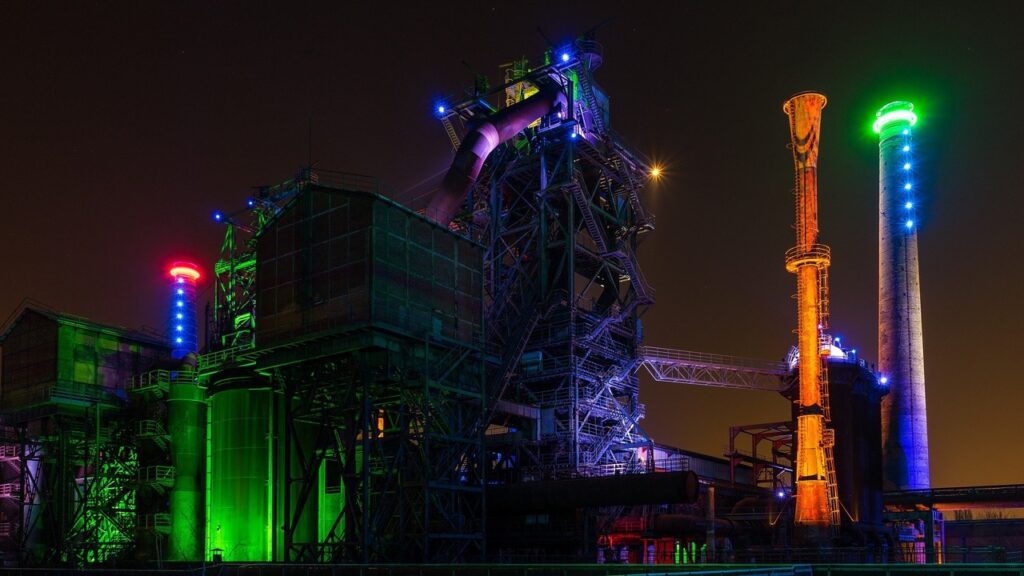
Another important sector in North Rhine-Westphalia is the chemical industry. The Rhineland in particular, with numerous world market leaders in future-oriented sectors such as digital process technology, electrical engineering, automotive or smart health, is one of the top locations worldwide. With around 93,000 employees and 42.3 billion euros in sales, NRW is the most important location for the chemical industry in Germany.
The electrical industry is another industrial focus for NRW. With around 155,000 employees, it is the third largest employer in North Rhine-Westphalia's industry. Its strengths lie primarily in the areas of automation, lighting and installation technology. Here, the sector supports innovations in future markets such as Industry 4.0, energy, mobility, healthcare and buildings.
Technology: Leading the way in new materials and IT security
In the technology sector, North Rhine-Westphalia is an innovation-driven location with a dynamic start-up scene, a strong SME sector, numerous hidden champions and DAX-listed companies.
The materials sector is a particular focus here, with over 7,000 companies and research institutes. New and lightweight materials are considered a key technology and help develop solutions to address major global challenges such as the climate crisis or resource scarcity.
Moving away from an industry based on petroleum and toward one based on renewable raw materials - this is also where biotechnology comes in. With 25 universities, six Max Planck Institutes, three Fraunhofer Institutes, three Helmholtz Institutes and six Leibniz Institutes focusing on life science, NRW is one of the most important locations for biotechnology in Germany.
NRW is equally important as a location for the field of IT security. Here, the state has undergone decisive further development over the past five years. More than 700 researchers, spread across 20 universities of applied sciences and universities, and over 400 IT security companies in NRW are working on cybersecurity.
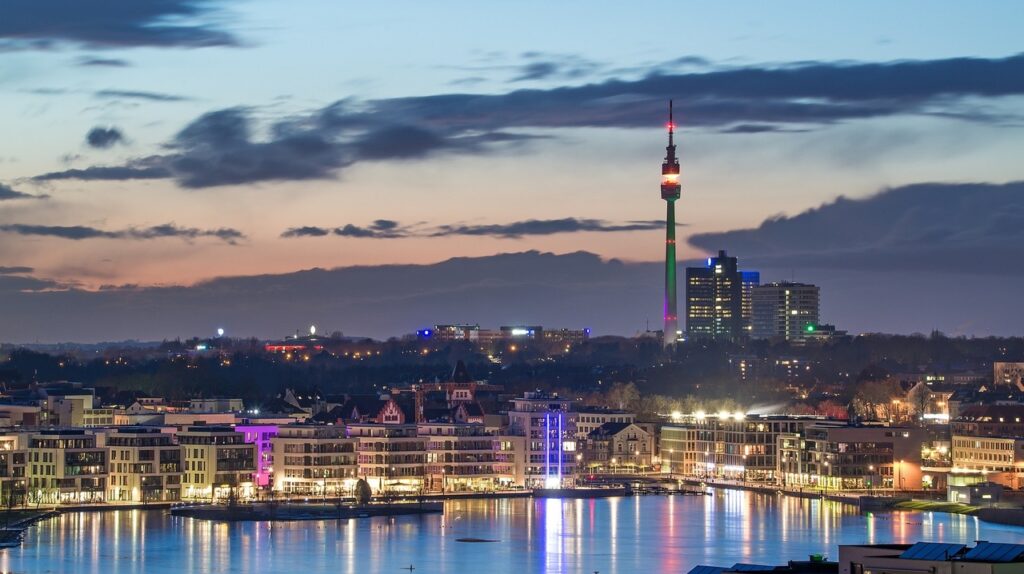
Healthcare industry: strongest sector in terms of sales in NRW
The largest sector in terms of sales and jobs in North Rhine-Westphalia is the healthcare industry. Subsectors such as medical technology and the pharmaceutical industry occupy a leading position here. Close exchange and cooperation between research and industry ensure innovative development in health care. In addition, the state plays a leading role in Germany in terms of digitization with the use of telematics applications.
With around 350 hospitals, over 4,000 pharmacies and more than 25,000 doctors' and dentists' practices, medical and nursing care forms the core sector of the healthcare industry in NRW.
Logistics: Most important growth sector and leading in Europe
Logistics is one of the most important growth sectors in North Rhine-Westphalia. For years, NRW has been considered Germany's leading logistics location. Of the 25 most important logistics companies, nine have their headquarters here, including Deutsche Post DHL, Rhenus, UPS, FedEx and Arvato.
Research in NRW also focuses intensively on the topic of logistics. Around 4,800 students are enrolled in 45 logistics degree programs in areas such as technical logistics, digital logistics, retail or production logistics. In addition, the Fraunhofer Institute for Material Flow and Logistics IML in Dortmund is the world's largest and most important research institute for logistics topics.
In addition, facilities such as "startport" in Duisburg or "Digital Hub Logistics" in Dortmund ensure a strengthening of the digital logistics ecosystem as well as better promotion and networking of start-ups and companies in the logistics sector.
How did the Start.up! Germany Tour lead to the Slovenian startup OmniOpti participating in the accelerator startport GmbH?
What can you achieve as a Slovenian startup in the Ruhr region?
And how does startport support the development of such foreign startups in the German market?
These and other questions are clarified in this exciting conversation between Martin Pečar from OmniOpti and Jan Herzogenrath from startport, which was conducted during last year's Start.up! Germany Tour.
Moderated by Alisa Schuler from the Niederrheinische IHK Duisburg-Wesel-Kleve and with a short introduction by Dominik Stute from the IHK zu Dortmund.
